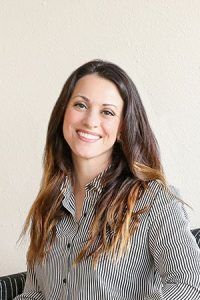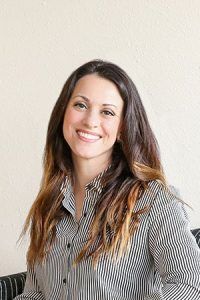Waco Moms: I Don’t Milk My Own Cows and Other Reasons to Go to Therapy

I Don’t Milk My Own Cows and Other Reasons to Go to Therapy
We at Waco Moms are for the de-stigmatization and promotion of therapy as a tool that should be encouraged and used by all mothers who find themselves in a place of needing assistance with their mental health. Thank you to Erin McGinty Fort, M.S., MHA, LPC-S, CEDS-S for sponsoring and providing us with this thoughtful insight.
This morning, I was laying in bed and reading one of my favorite blogs. This particular blog focused on an Instagram “momfluencer” who is a mother to almost seven, classically-trained ballerina, recent beauty pageant winner, makes sourdough bread from scratch, and owns a farm with her husband. I didn’t make it very far into the blog itself before I looked up her Instagram account, and- before I knew it- I found myself wondering why I, too, didn’t provide my family with fresh-from-the-teat cow’s milk every morning.

By the way, I won’t share this momfluencer’s name; this isn’t about her, because there is truly nothing more awe inspiring to me than a woman who does pirouettes while slicing beets. I mean that seriously. This post is about comparison, mom guilt, and why we all need someone to talk to about how that affects us.
If you’re anything like me, then you, too, fall prey to comparisons with other moms. Despite being told not to compare ourselves with others, it’s actually pretty hard to avoid. As a licensed mental health therapist of over 15 years, I spend hours every week talking with women about the negative effects of comparing our bodies, diets, parenting, and partnering with others. Yet there I was this morning, adding a yeast starter kit to my shopping cart because making bagels at home with a 3-year-old seemed like a good way to combat guilt from being gone all week on a work trip.
(Fantasizes about bagels for more time than I’d like to admit, returns to writing blog post that is due today.)
Broadly speaking, guilt means that you feel as if you have done something wrong. Sometimes guilt acts like our moral compass, letting us know when we are acting outside of our values. There’s also the idea of toxic guilt, which is when you feel guilty for, well, everything. When traveling for work, feeding your kid cereal for dinner, taking time away with friends or your partner, and forgetting about Crazy Sock Day at school create similar feelings to, oh, let’s say lying… then maybe something’s off about that.
If you just scoffed and mumbled, “Of course lying and socks aren’t the same” from the closet you’re hiding from your kids in, I get it. It sounds ridiculous to compare the two, and yet moms feel guilty all the time, from everything. Even one of the world’s greatest female athletes of all time spoke about her own mom guilt in a recent interview.
 Normally I would look for any reason to be in the same club as Serena Williams. With a pandemic, rising inflation, world conflict, nuclear threats, skyrocketing rates of anxiety in children, working full-time in a helping profession, and keeping it cool with a toddler, though, maybe the mom guilt club isn’t one that I want to be in. Nor should you.
Normally I would look for any reason to be in the same club as Serena Williams. With a pandemic, rising inflation, world conflict, nuclear threats, skyrocketing rates of anxiety in children, working full-time in a helping profession, and keeping it cool with a toddler, though, maybe the mom guilt club isn’t one that I want to be in. Nor should you.
Which brings us full circle to therapy. As a society, we’ve made some progress on reducing the stigma related to mental health. Yet I’m still surprised that people believe that you have to be really struggling or really “sick” to go to therapy. In some ways, therapy is just this:
Person A isn’t feeling great about something and/or has something they’d like to be different.
Person B is the therapist, who is a person dedicated to listening to you, understanding you, and helping you to figure things out. They help to meet the same needs for you that you so lovingly provide to your families.
Together, both of them identify what Person A wants to be different, how they may have ended up where they are, and what might keep them stuck from changing. The process can be scary if you’ve never been through it, but- at the end of the day- your therapist is an imperfect human, too. We don’t judge, we definitely try not to bite, and we want to help you make things better.
And yes, sometimes those “things” are severe mental health issues. Sometimes they’re “things” like mom guilt, which really significantly impacts our quality of life. And that’s as a good of a reason I’ve ever heard to go talk to someone.
If you’re ready to unload that mom guilt you’ve been carrying around, here are a few resources to get you started:
-
Join Thrive Wellness Waco’s new monthly group , Mom Guilt Detox , to meet other guilty-as-charged moms, eat snacks that your kids haven’t licked, and learn practical tips for shedding that guilt.
-
Thrive Wellness Waco offers outpatient therapy, nutrition therapy, and psychiatry for you and your family’s mental health needs.
-
Check out Waco Moms’ new resource page to learn about other mental health help you can find locally and otherwise.
 Erin McGinty Fort, M.S., MHA, LPC-S, CEDS-S
Erin McGinty Fort, M.S., MHA, LPC-S, CEDS-S
Interim Co-Chief Clinical Officer & Executive Director, Thrive Wellness Waco
Erin has over a decade of experience with exclusively treating eating disorders in men and women. She has worked at several nationally-known treatment facilities, including Rogers Behavioral Health, Castlewood Treatment Center, Monte Nido & Affiliates, and Eating Recovery Center. In addition to her role as a clinician, she has also served as a Program Director and Clinical Director. She has worked at all levels of eating disorder treatment throughout her career, including inpatient, residential, partial hospitalization, intensive outpatient, and now outpatient. She previously was the Coordinator of Eating Disorder Services at Baylor University’s Counseling Center. She is intimately familiar with the anxieties that can come with seeking help, as well as the different challenges that individuals and their families face along the journey of recovery.
Erin is a licensed professional counselor and supervisor in the state of Texas, and has her graduate degrees in both Counseling and Health Administration. She is a Certified Eating Disorder Specialist through the International Association of Eating Disorders Professionals (iaedp) , which allows clients to rest assured that they are receiving care from a highly trained, competent, and skilled provider in the area of eating disorders. Because of the rigorous demands that life throws at us and the flexibility needed for providing treatment, Erin is a Board Certified TeleMental Health Provider. She is a professional member of both iaedp and the Academy for Eating Disorders.
She has regularly provided eating disorder training and conference presentations to medical and mental health professionals.
A transplant from the Midwest, Erin has embraced Texas as her home. When not working at Thrive Waco, she enjoys spending time with her husband, daughter, and furry son.
The post Waco Moms: I Don’t Milk My Own Cows and Other Reasons to Go to Therapy first appeared on Thrive Wellness.



 Erin McGinty Fort, M.S., MHA, LPC-S, CEDS-S
Erin McGinty Fort, M.S., MHA, LPC-S, CEDS-S




